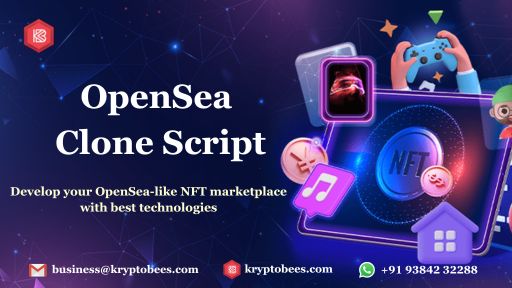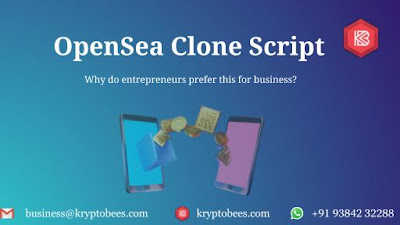OpenSea Clone Script: The Key to Launching Your Own NFT Marketplace

Our existing financial ecosystem is our reality, and our future depends mainly on technological advancements. In the blockchain realm, NFTs are the hottest modern crypto invention. And many cryptocurrency traders and individuals are looking to buy and sell them. NFTs have set trends in recent months, and some of them have sold for millions of dollars, fascinating many people throughout the world. A platform called the NFT marketplace is required to exchange NFTs. In a nutshell, it is an online trading platform for securely purchasing, selling and minting non-fungible tokens by connecting a wallet. In contrast, the marketplace's owner can make billions by charging fees for the services they provide. Many startups are on the lookout for the best NFT marketplace business plan. As a result, OpenSea is a feasible NFT marketplace business model from which to enter the world of NFTs. In 2023, creating an NFT marketplace website or app like OpenSea is a fantastic business concept. However,...


